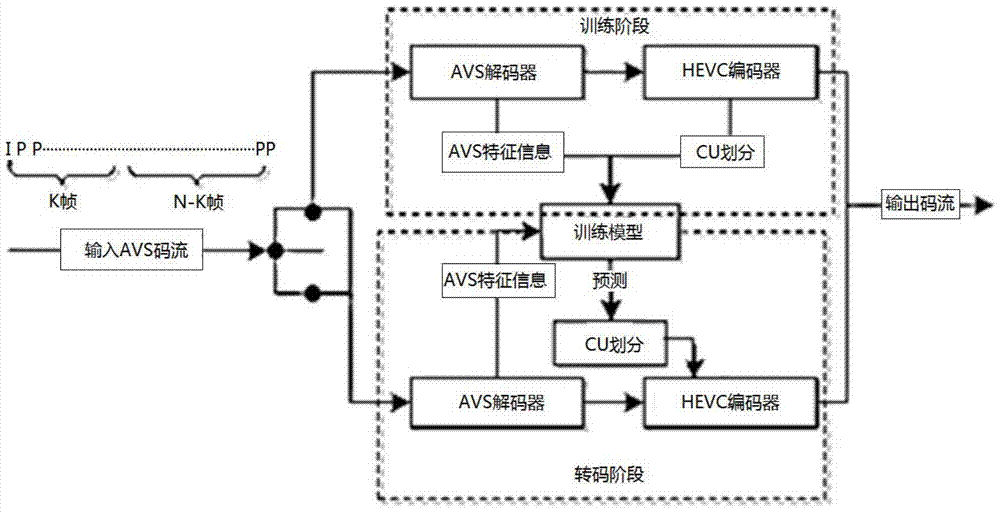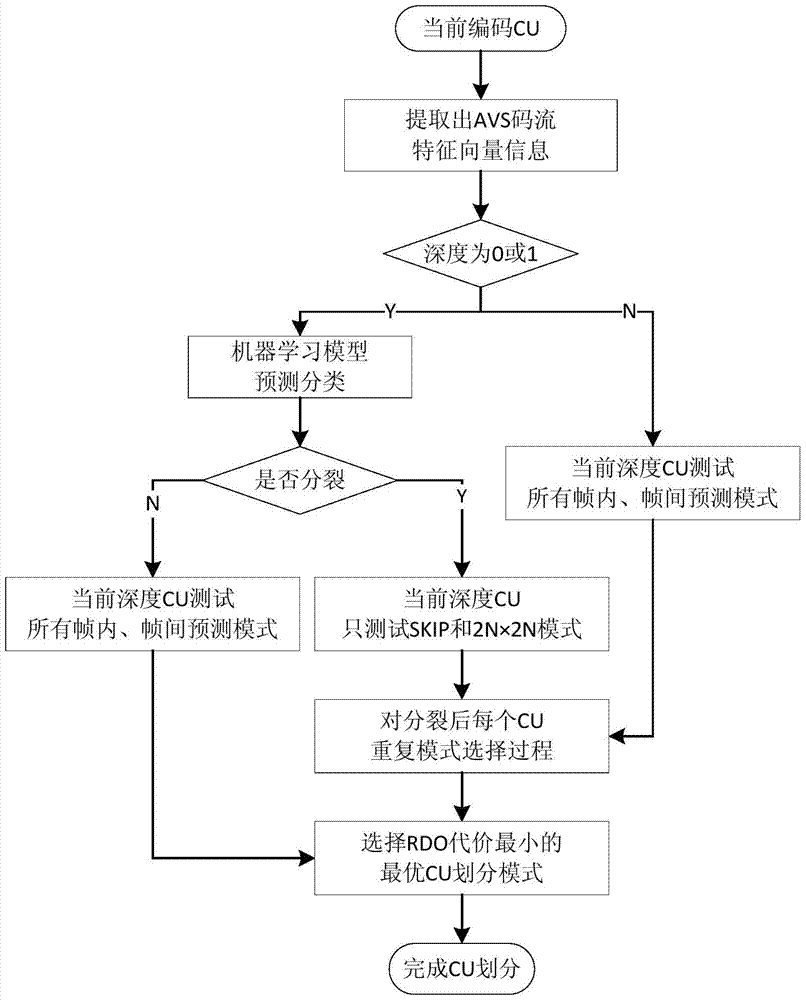An optimized video transcoding method from avs to hevc based on support vector machine
A support vector machine and video transcoding technology, which is applied in digital video signal modification, electrical components, image communication, etc., can solve the problems of high implementation complexity and no coding information, so as to improve the transcoding speed and reduce the complexity of transcoding speed and save transcoding time
- Summary
- Abstract
- Description
- Claims
- Application Information
AI Technical Summary
Problems solved by technology
Method used
Image
Examples
Embodiment 1
[0020] like figure 2 As shown, this embodiment is divided into the following four steps:
[0021] Step 1. Collecting the feature vectors of the AVS code stream, specifically: collecting the CU division information of corresponding positions in the AVS code stream and corresponding HEVC depths of 0 and 1.
[0022] The AVS feature vector is collected from the AVS code stream, including information such as macroblock coding mode, motion vector and transformation coefficient.
[0023] The macroblock coding mode refers to: when the depth of HEVC corresponding to AVS is 0, each CU contains 16 macroblocks, and therefore contains 16 features; when the depth is 1, each CU contains There are 4 macroblocks, corresponding to 4 mode features.
[0024] The motion vector refers to: the motion vector in the AVS is 8×8, and a macroblock contains 4 motion vector basic units, and each motion vector is respectively moduloed, and then the four motion vectors in a macroblock are The mean value ...
PUM
 Login to View More
Login to View More Abstract
Description
Claims
Application Information
 Login to View More
Login to View More - R&D
- Intellectual Property
- Life Sciences
- Materials
- Tech Scout
- Unparalleled Data Quality
- Higher Quality Content
- 60% Fewer Hallucinations
Browse by: Latest US Patents, China's latest patents, Technical Efficacy Thesaurus, Application Domain, Technology Topic, Popular Technical Reports.
© 2025 PatSnap. All rights reserved.Legal|Privacy policy|Modern Slavery Act Transparency Statement|Sitemap|About US| Contact US: help@patsnap.com



